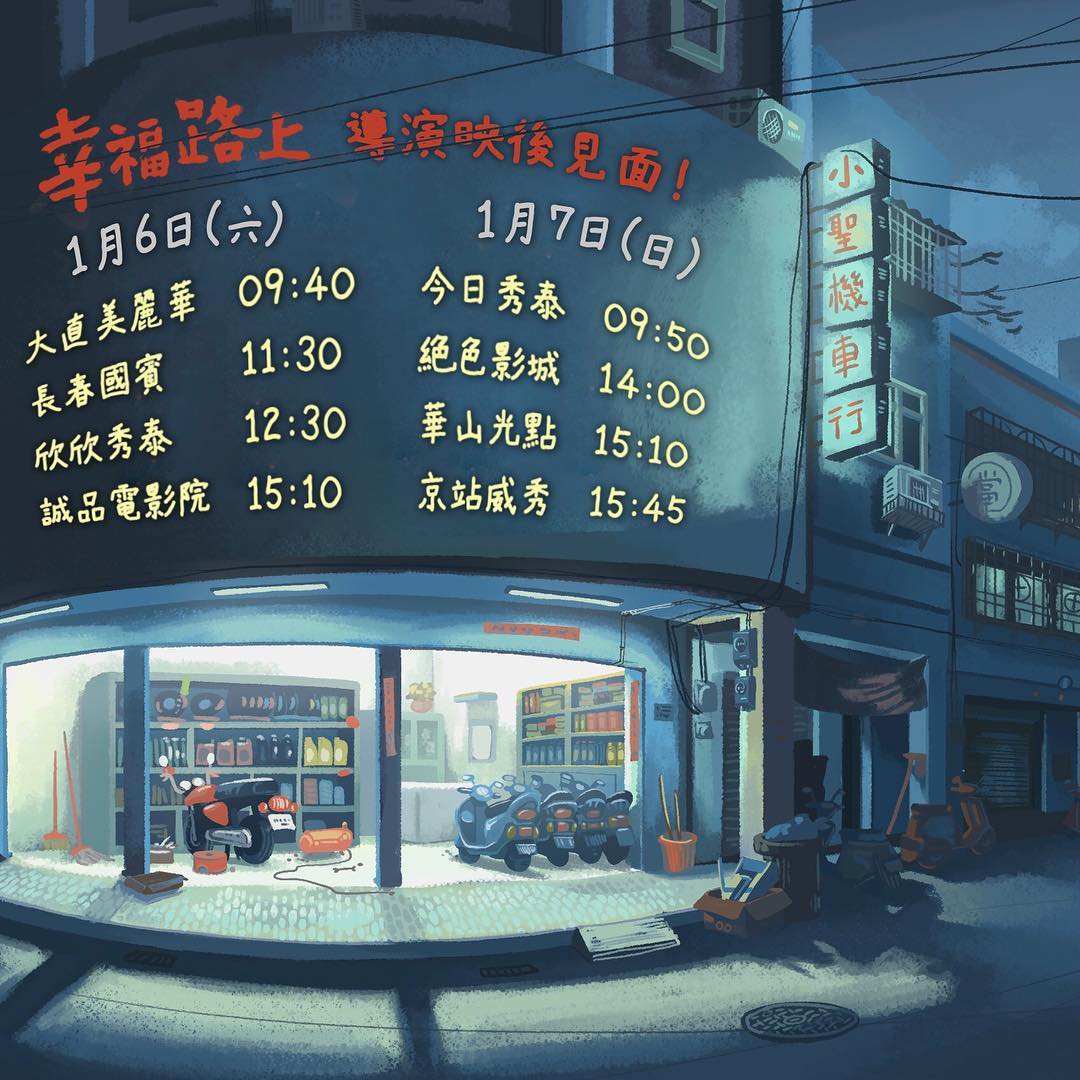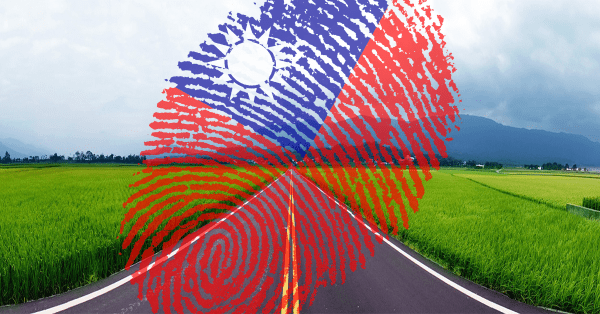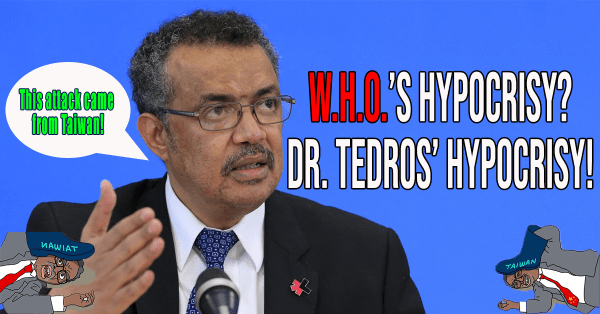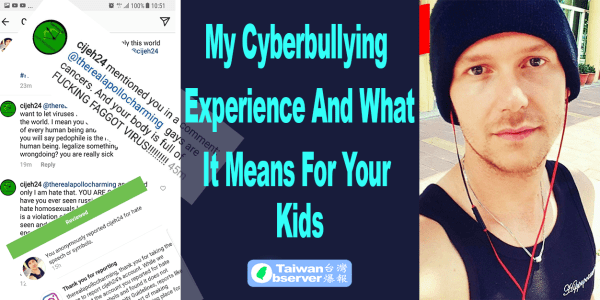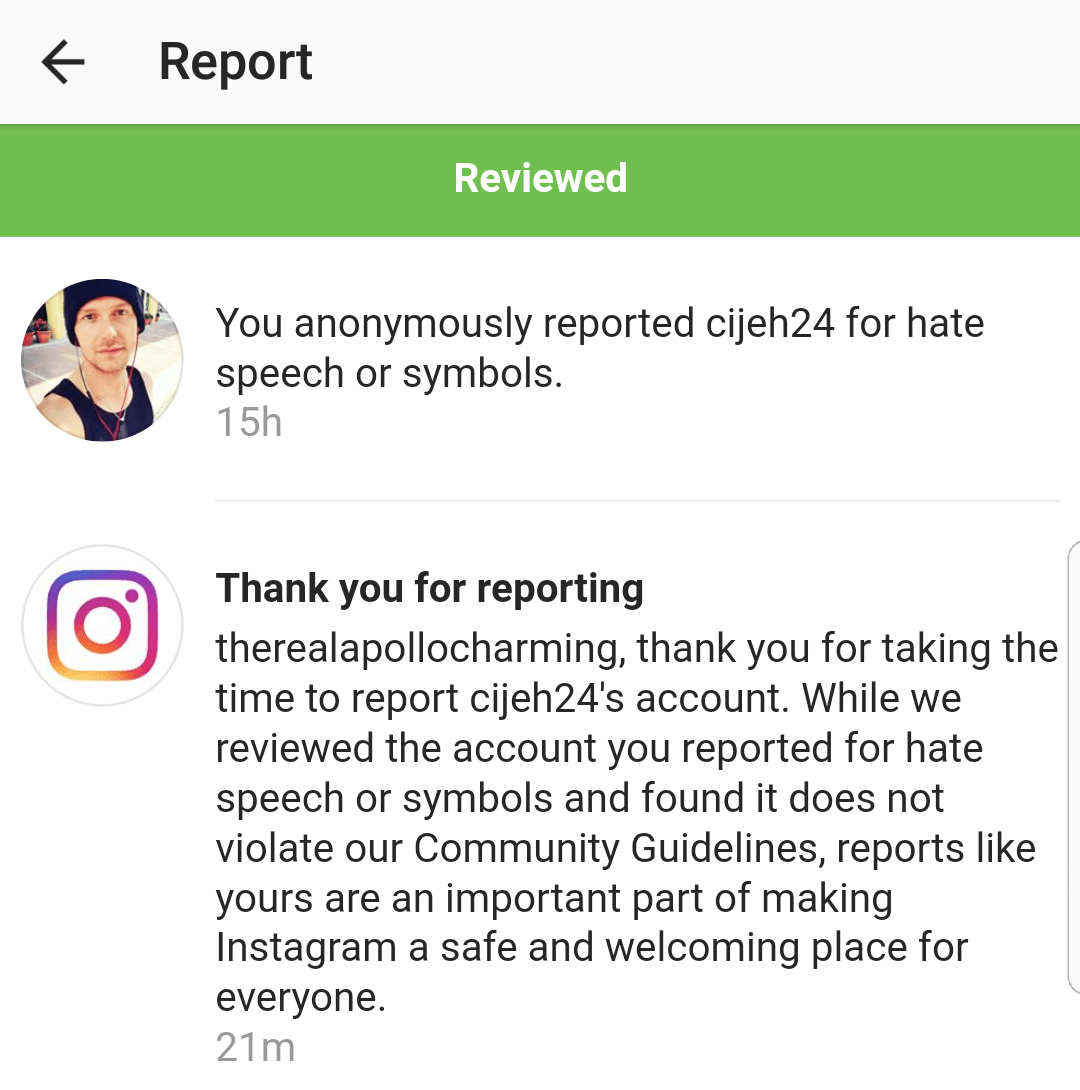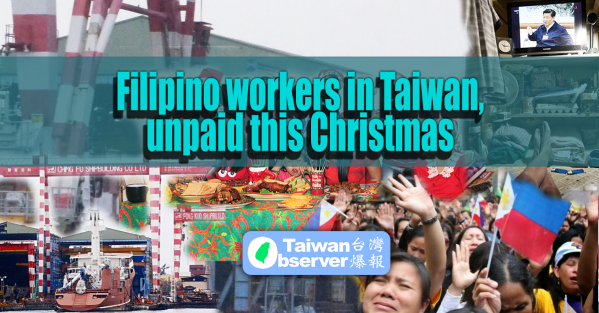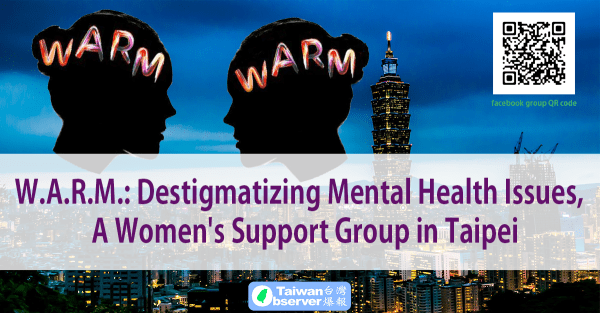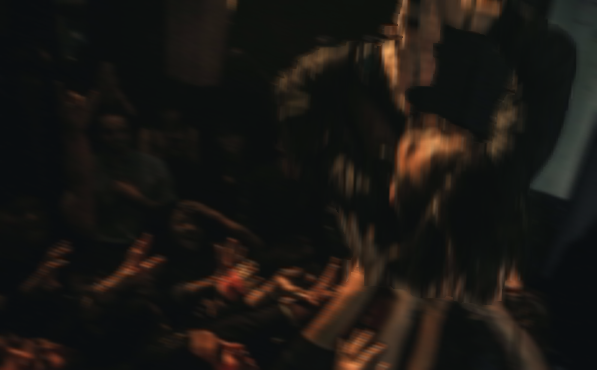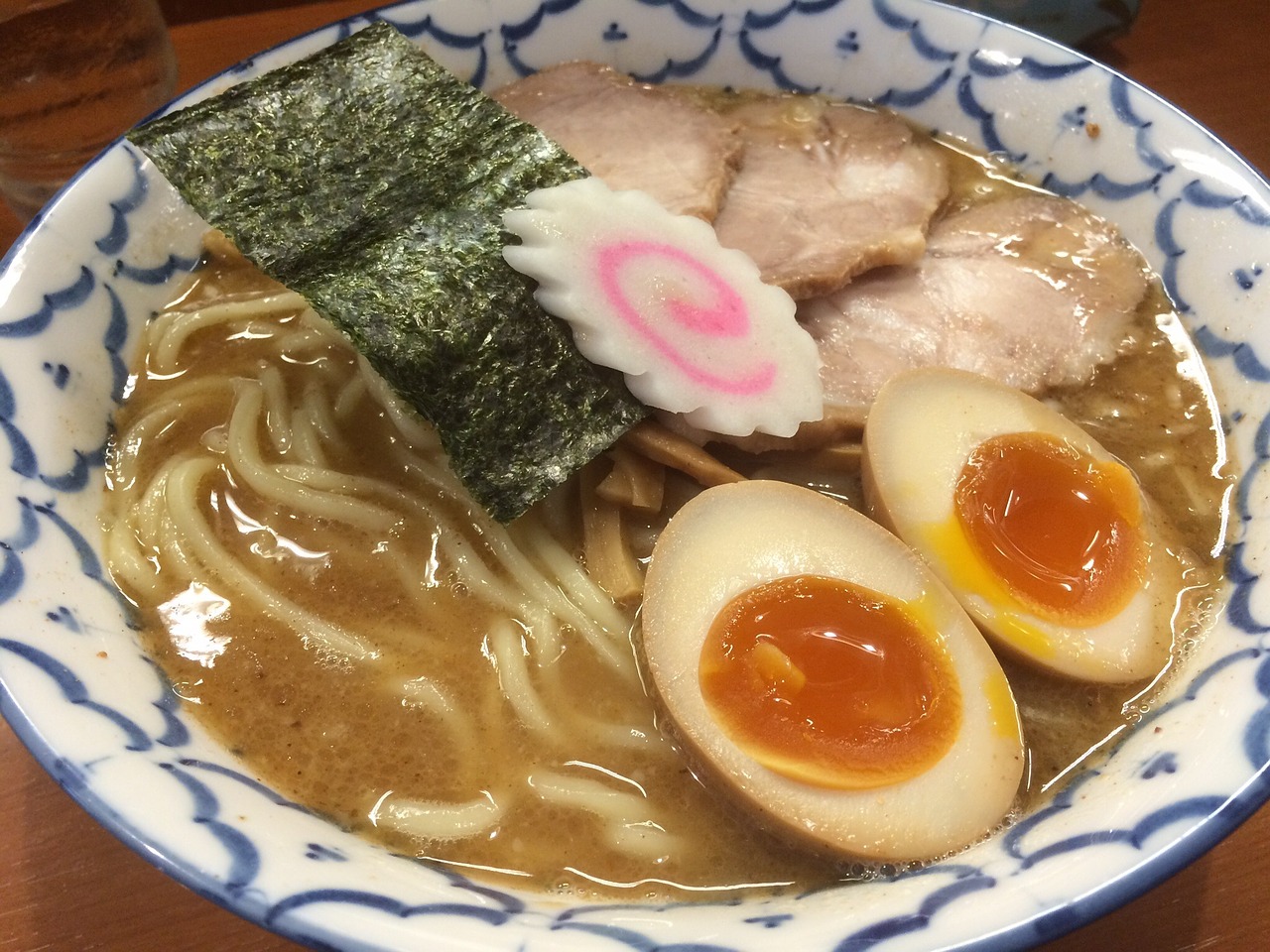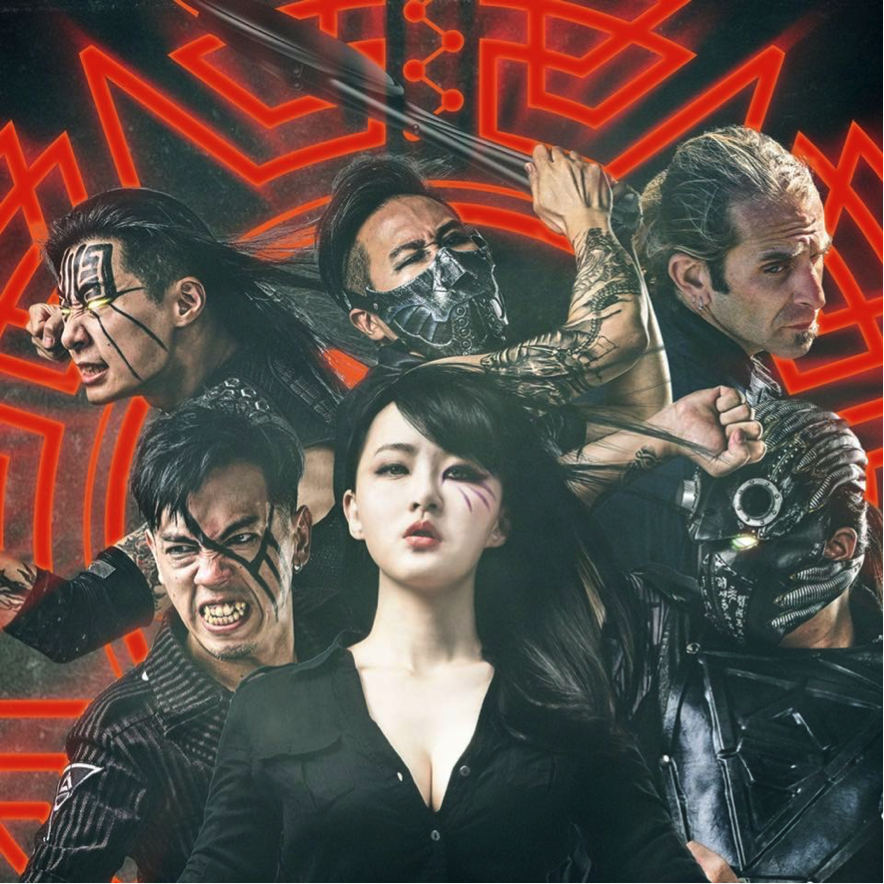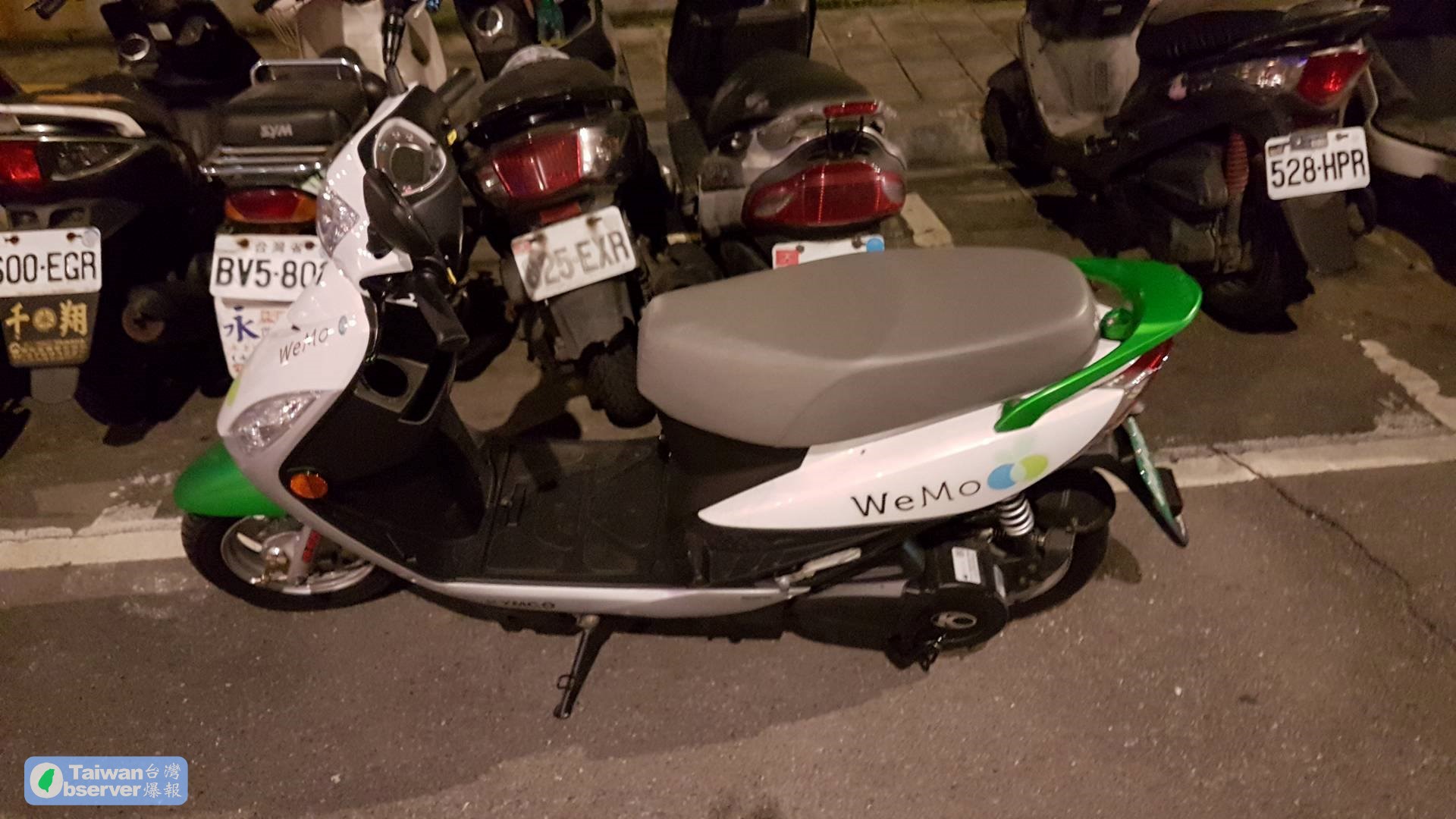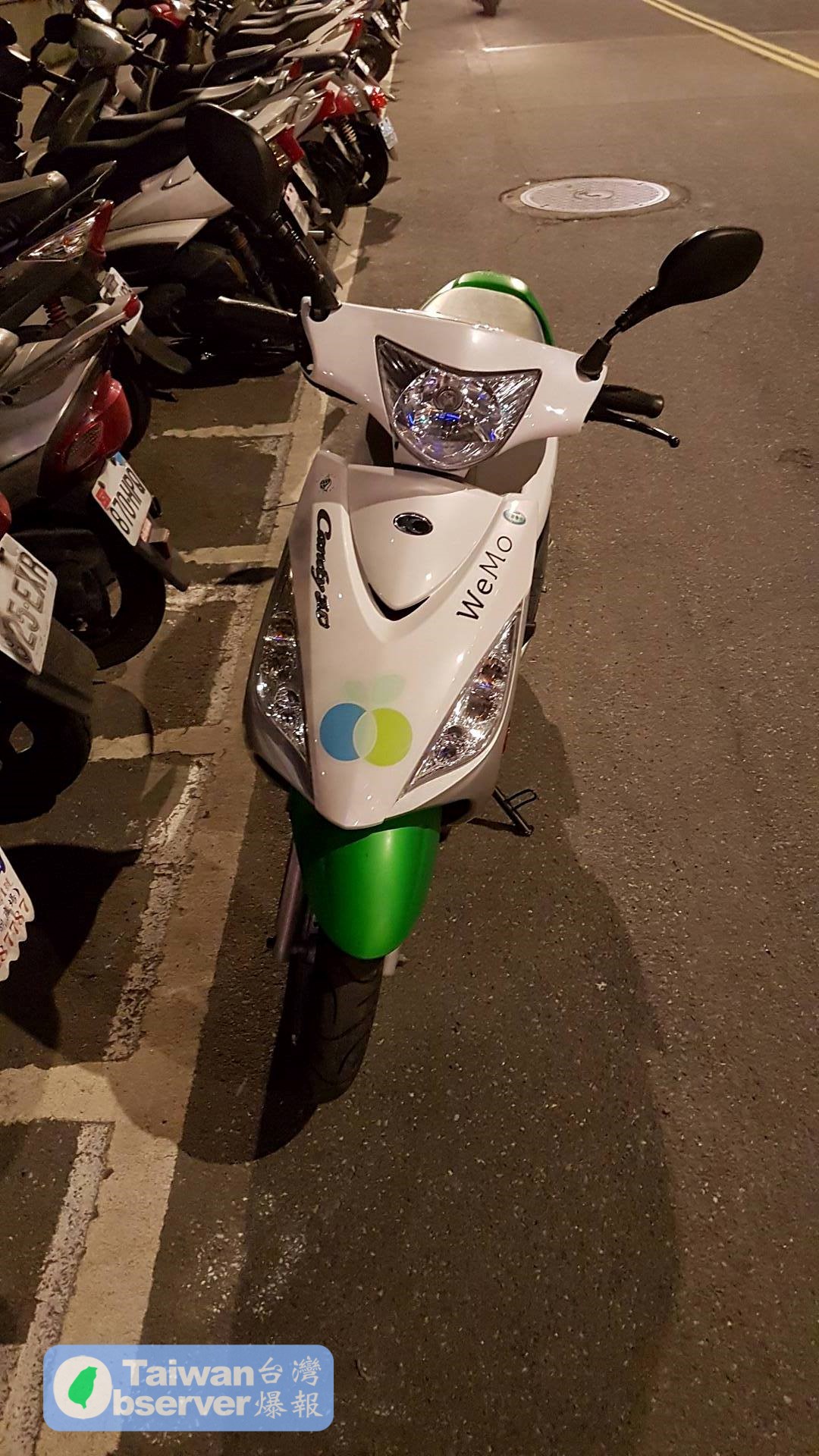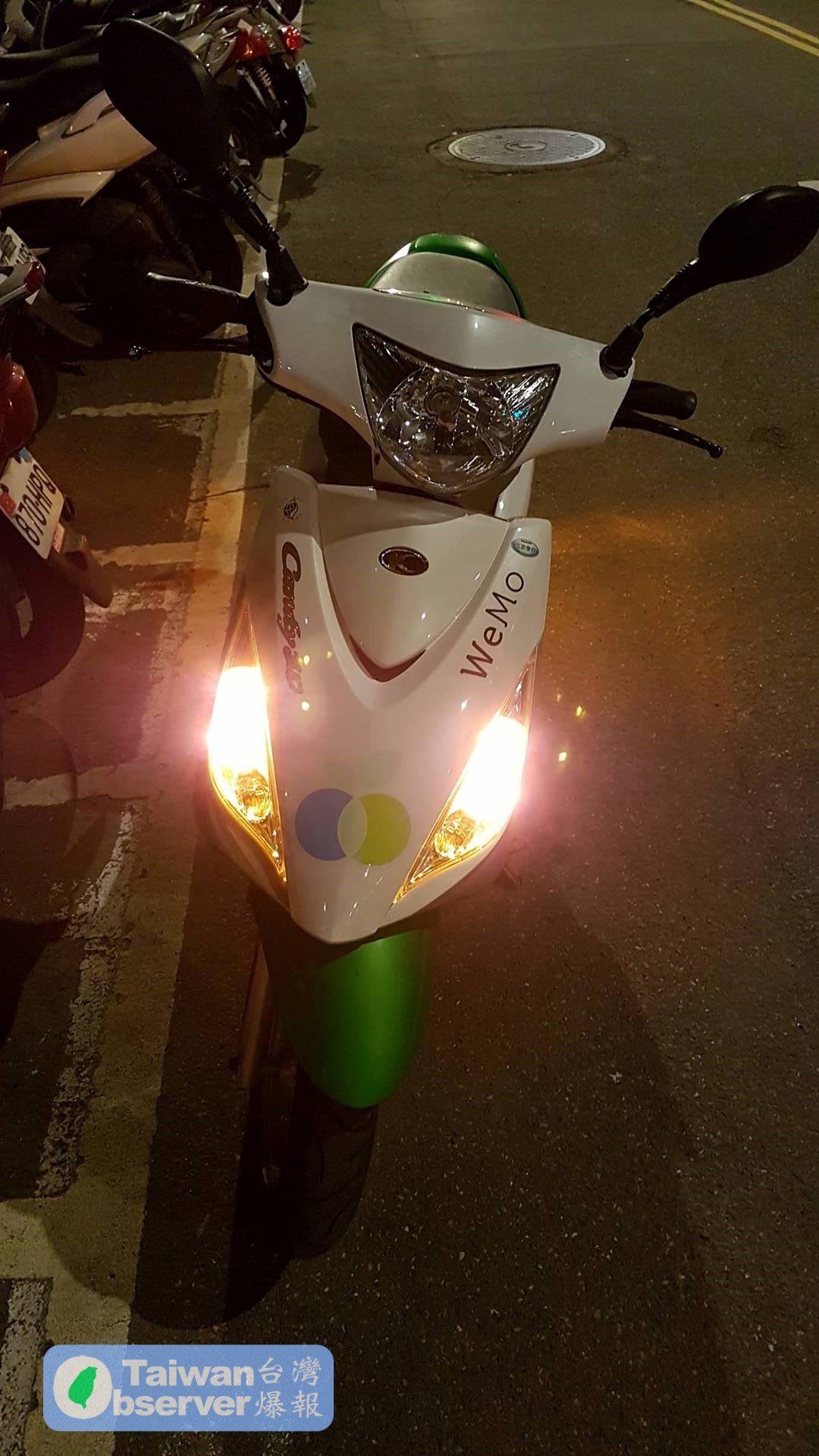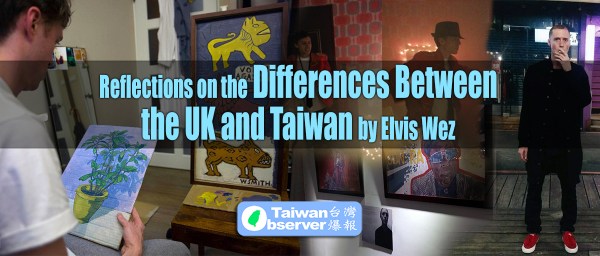by: Jean-Jacques Chen
Animation, and Taiwan.
Two words that seemingly don’t mesh automatically in the same sentence in most people’s minds.
And most people would be wrong !
Taiwan has actually got quite a long story in the worldwide animation industry.
Ever seen those little indie animated movies called Little Mermaid, Aladdin, Lion King and Mulan, made by an up and coming indie studio called Disney ? Well, it turns out that if all the preproduction, scriptwriting, character designs and storyboarding of these movies were made in Disney’s HQ in California, most of their animated production were actually contracted to… Taiwan !
Long before China, Korea, and now other SE Asian countries such as Thailand, Vietnam and Indonesia got on board; Taiwan has been, for almost 2 decades, the world’s animation production powerhouse, from the 80’s to the early 2000’s, having orders coming from the USA, Europe and even Japan ! This period was commonly called by nostalgic Taiwanese veteran animators who are still connected to the trade nowadays, the golden era of Taiwanese animation.
So what prompted it to end ? How could such a profitable business suddenly fall apart, leaving all its former employees to either become animation teachers in arts universities (such as yours truly), or joining only a sparse number of small to medium sized studios, scrambling to make ends meet, working mostly for the video game industry because that’s where the money is today?
Toy story is what happened.

After Pixar launched its surprise worldwide smash hit Toy story in 1995, compounded by a Bug’s life and Toy Story 2 in 1998 and 1999, something happened in every big animation studio executive’s mind, especially with Disney’s : “THIS is the future of animation ! CG animation is the way to go ! Be damned with outdated hand-drawn animations, nobody wants to watch that anymore.”
Following this mindset, Disney closed one by one all its long-established hand drawn studios worldwide, throwing away decades of experienced craftsmanship and talents, and started focusing on working on CG movies only. That, in turn, meant cutting Taiwan’s animation industry from its biggest client (and then some, as in a snowball effect, the whole world’s animations projects, except Japan, had turned CG !)
Taiwan’s biggest animation companies were caught completely unaware and unprepared by this massive tectonic shift, and frantically scrambled together to try to breed some locally Made in Taiwan animated movie projects to keep the machine rolling. While all these attempts showed lots of heart and goodwill, they all tanked completely in the box-office due to one major factor : Taiwan was full of veteran animators, but lacked experienced storytellers, scriptwriters and lead directors. Therefore, those movies were just simply not at the same level of compelling storytelling that Taiwanese audience were used to see from both the USA and its direct neighbour, Japan. Thus marked the agonizing decline of what was once a thriving business and a source of national pride. Most of its once seemingly invincible animation companies went bankrupt, and all its talents scattered to the winds.
As a former animation film director myself (I completed my 7 years-long animation directing master program in Brussels Belgium, and came afterwards in Taiwan for 10 years, where I’ve worked in the animation industry in Taiwan for my first 8 years before giving it up and becoming a photographer and animation teacher), I’ve always complained about the dearth of worthy animation film projects that were 100% made in Taiwan for these past 10 years.
Which finally leads us to today’s main topic : On Happiness road !
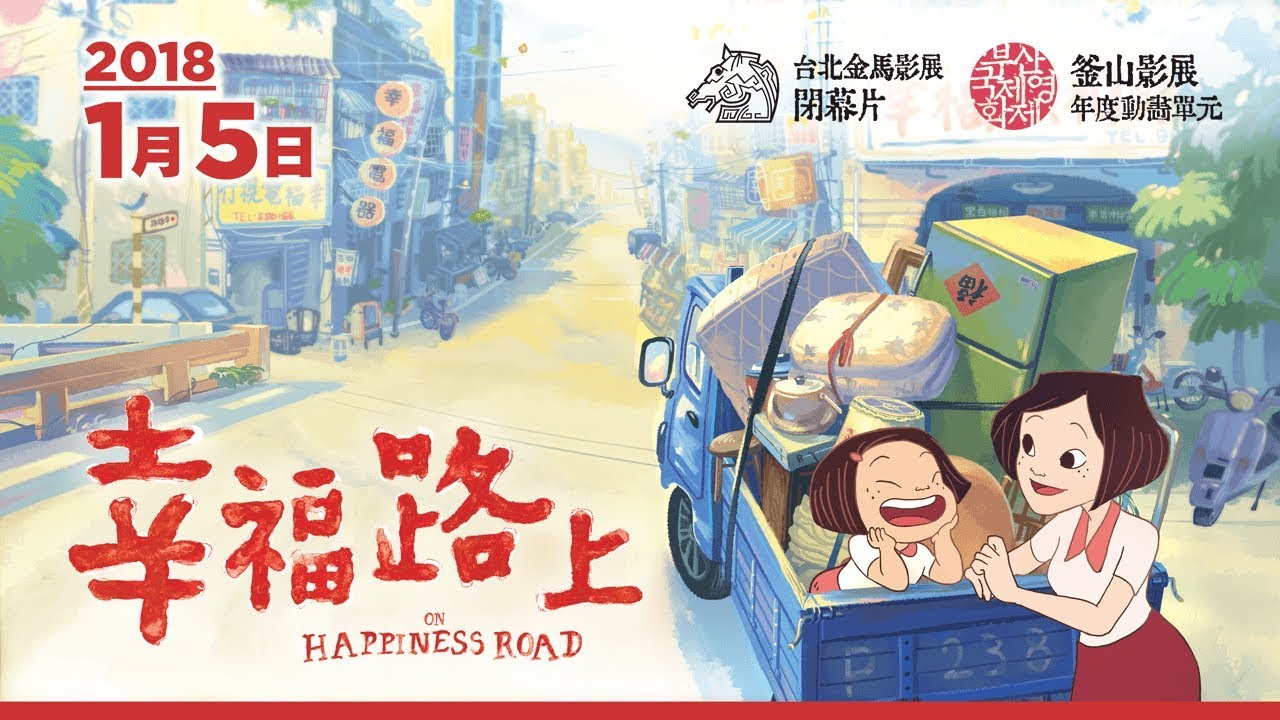
The movie is telling the story of Lin Hsu Chi, a Taiwanese woman born in the mid 70’s who’s now married and living in America. Due to her beloved Amis grandmother’s passing, she rushes back to her childhood neighborhood in Xinzhuang, a suburb of Taipei, at her old family’s house located on the titular Happiness road, for helping with the funerals. There, while rediscovering her surroundings and the life that she left behind years ago, she gradually reminisces (in a series of flashbacks back and forth between past and present) all the things that led her life to what it is now, from her innocent and whimsical childhood, through her quickly maturing teenage rebellious years and leading to her hard working young adulthood age, before getting married and leaving for her American dream, to the pursuit of happiness. But did she get it ? And what’s happiness exactly? Those are the important questions the main character is constantly asking herself all throughout the movie.

Interestingly enough, the movie’s story is not only Hsu Chi’s, but also the rest of the ensemble cast, making some detours into the lives of its endearing supporting characters, from her family to her whimsical aboriginal grandmother (one of the best characters of the film), to her childhood friends, their direct environment and backgrounds, as well as a crash course of Taiwan’s tumultuous history of these past 30 years, both culturally, politically, educationally, and socially, all of these seen through the eyes of Hsu Chi and her entourage, going beyond the status of an animation film, to sometimes look more like a documentary, all the while sprinkling a few visually poetic dream sequences all throughout the film, that only the power of animation could offer.
Although that seems a lot to digest for a single movie (and at moments, it does feel a bit overwhelming to the audience), the script is so well written that, at the end, all these seemingly sparse moments come together for an emotional finale that leaves butterflies in the audience’s stomach.

2 years ago, I started hearing echoes of the production of this great looking Made in Taiwan animated project, and it did catch my curiosity, after more than 10+ years of a creative desert on the island, I decided to follow its production story. There I learned the project actually initially started in 2013, where a short pilot was shown, and earned a prize for best film project at the Golden Horse festival that year ! As a result, its author and director, Hsin Yin Sung was awarded a 1 million NT$ fund for kickstarting the project. While 1 million NT$ sounds great, it is nowhere near enough to make an animation film, so the director had to fight all the way up to find people who would support her crazy dream of making a female-led, Made in Taiwan, animation story.

The films path would follow an avalanche of hurdles to have the film produced, where for the first few years, very few would take this project seriously, nor believe in its feasibility (read in Chinese : profitability) to want to help finance it.
But it also led to some unexpected positive encounters, such as famous Taiwanese actress Gwei Lun Mei, whom after reading the script, was brought to tears by it and decided on the spot that this movie’s story needed to be told, asking the director Sung (to her shock !) if she could be the main voice actress, thus weighing in a lot of her star power to help make this movie’s future financiers happier. Another unexpected help would come from famous Cape No. 7 and Seediq Bale’s director, Wei-Te Sheng, who also happens to be an old schoolmate of director Hsin. He also decided to support the movie as one of the characters voice (and most probably pulled some strings in the background to help the movie’s financing). To be honest, the whole production of this movie would deserve a movie on its own.
And finally, last week, the film got on screen ! Excited as I was to finally see the finished version of this movie project that I’ve been following for so long, and took even longer to make, I went to Spot Huashan for its afternoon screening. Little did I know that the director and the movie’s adorable young lead actress (XiaoChi’s kid’s voice actor) would be in the attendance for a Q&A session after the screening. Having met the director on a previous occasion at TNUA’s Kuandu animation film festival, for a lecture about her movie, we’ve already discussed a bit about her purpose with this film, and I was curious to expand a bit on our previous conversation. Ultimately, we didn’t have lot of time to talk, as she was on a promo tour and had to move on to another theater for the next screening, but she did have the time to tell me that the box office of the movie has so far, been really bad, and that there were talks about slashing the movie from the big screen, as soon as this thursday, only one week in.
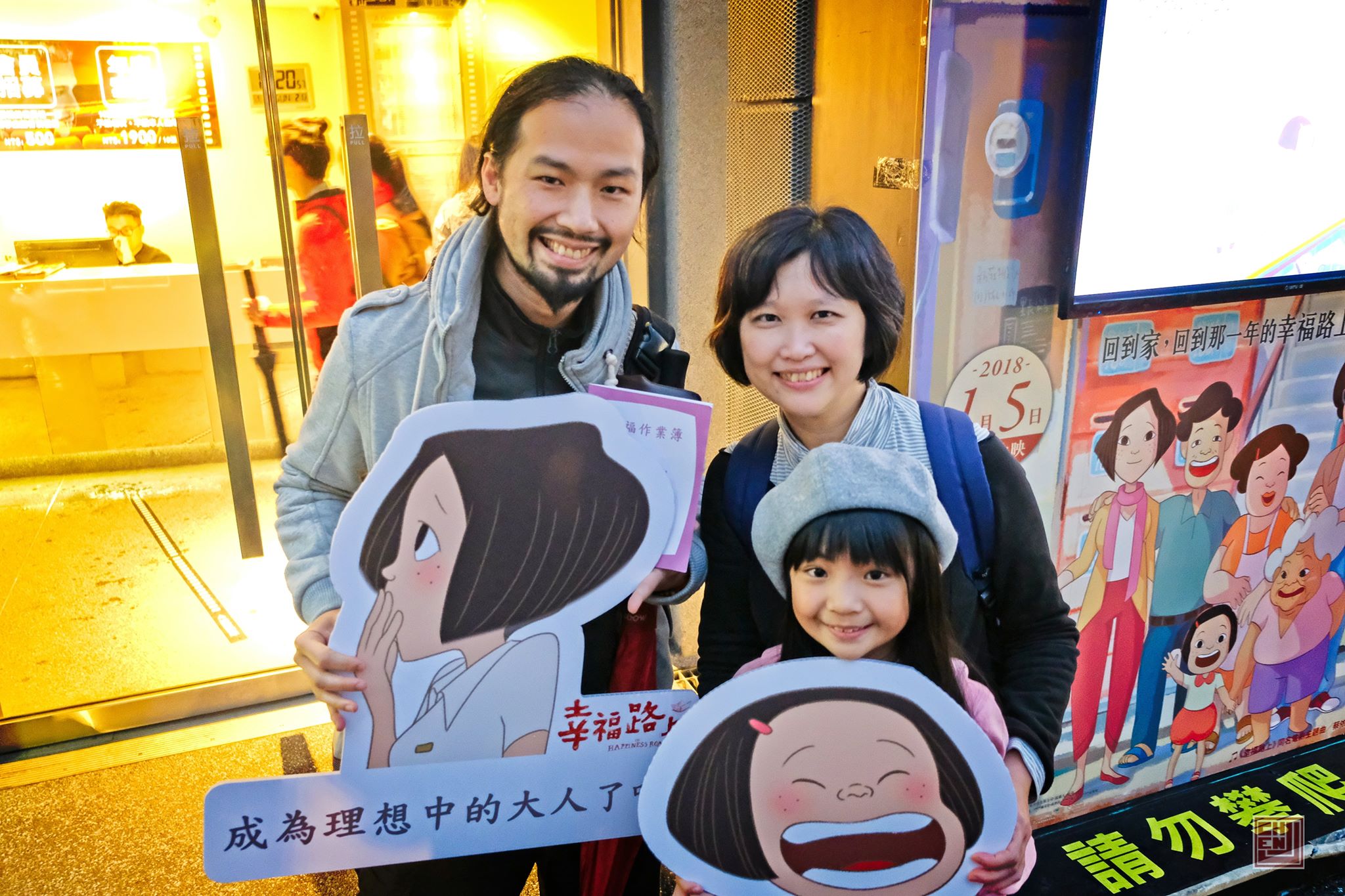
That would be a profoundly unfair fate for a production that has been through so much, brought upon by the sweat and tears of all the hard-working younger generation of animators and visual talents who believed in it (if you’ve never worked in the animation industry, I can assure you from an insider’s point of view that in the show-business world, it is by very far one of the most gruesome and heaviest workloaded career one could choose to tell a story).
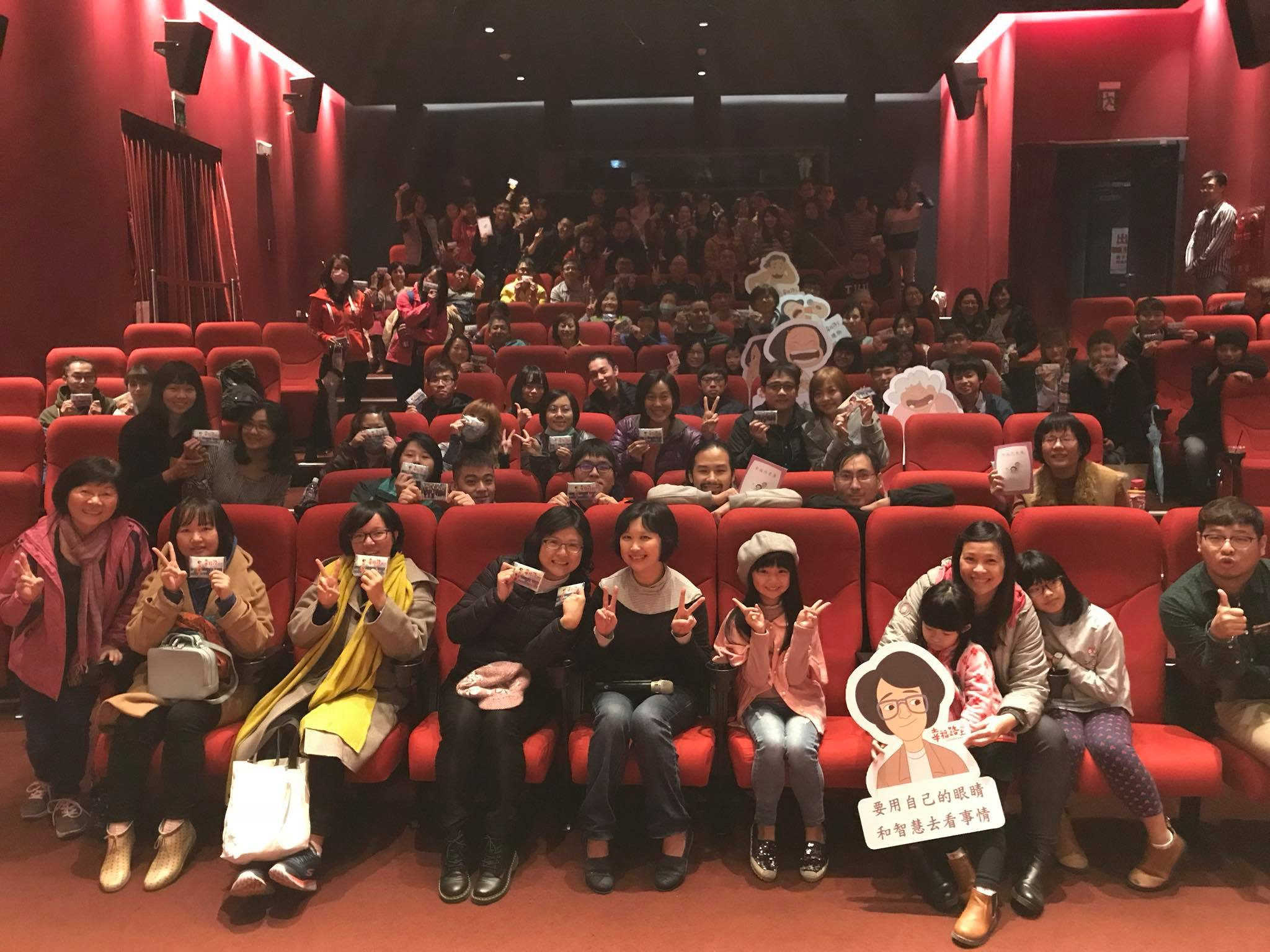
And not only for this specific movie, but for the entire animation industry of the country, marred with massive failures for the past 15 years. One could easily imagine why Taiwanese mass audience would be reluctant to go see that new Taiwanese animation film, as they could very well believe it’s one of those half-baked failures of old again.
And they would be absolutely wrong !
All early attendance have been raving about this movie, and the word of mouth is so far excellent, prompting some very enthusiastic reviews in news media such as Taipei Times and Apple Daily.
The movie is not perfect, of course. It has its flaws and as a veteran animation film director myself, I couldn’t help but notice that it suffers occasionally from a common mistake that lot of filmmakers do on their first animated feature film : the attempt to cram too many things in just one movie ! But, overall, it’s also what makes its charm, as it doesn’t necessarily abide by the international rules of visual storytelling, and tells its own story, in its own very taiwanese way (which for once, actually translates well on screen, thanks in big parts to the great quality of the script).

If such a gem of a movie, which is so great at addressing personal questions about self worth, family bonds and values, and one’s own place into society and life, and addressing it to so many different audiences, both to kids to teenagers to young and older adults (which really is a first in Taiwanese animation history), if such a great made in Taiwan animation still can’t crack the bamboo ceiling of its own country’s audience’s…. then, no one ever will, and it will just show all potential future investors that they were right from the beginning, that the Taiwanese broad audience just don’t care about this particular niche of filmmaking (adult animation) therefore is simply not worthy of attention anymore.
This would simply kill the whole Taiwanese animation industry once and for all, the next national project to happen may be in the next 15 years if we’re lucky… meanwhile, all the young talent that have been growing up on this project and could have the potential of becoming Taiwan’s future in the animation industry, will either starve, change career, or move abroad…
Yes, this movie is THAT important !
It is Taiwan’s animation industry’s last hope to break through, to be even allowed to exist in the future.
And it’s fading into darkness as you’re reading this article…
If you have the time, and intend on starting 2018 with a great bittersweet but warm hearted movie, please, go watch it ! Not only you will help support Taiwan’s animation future, but you’ll also thank me for recommending you to go watch one of Taiwan’s best films to date.
